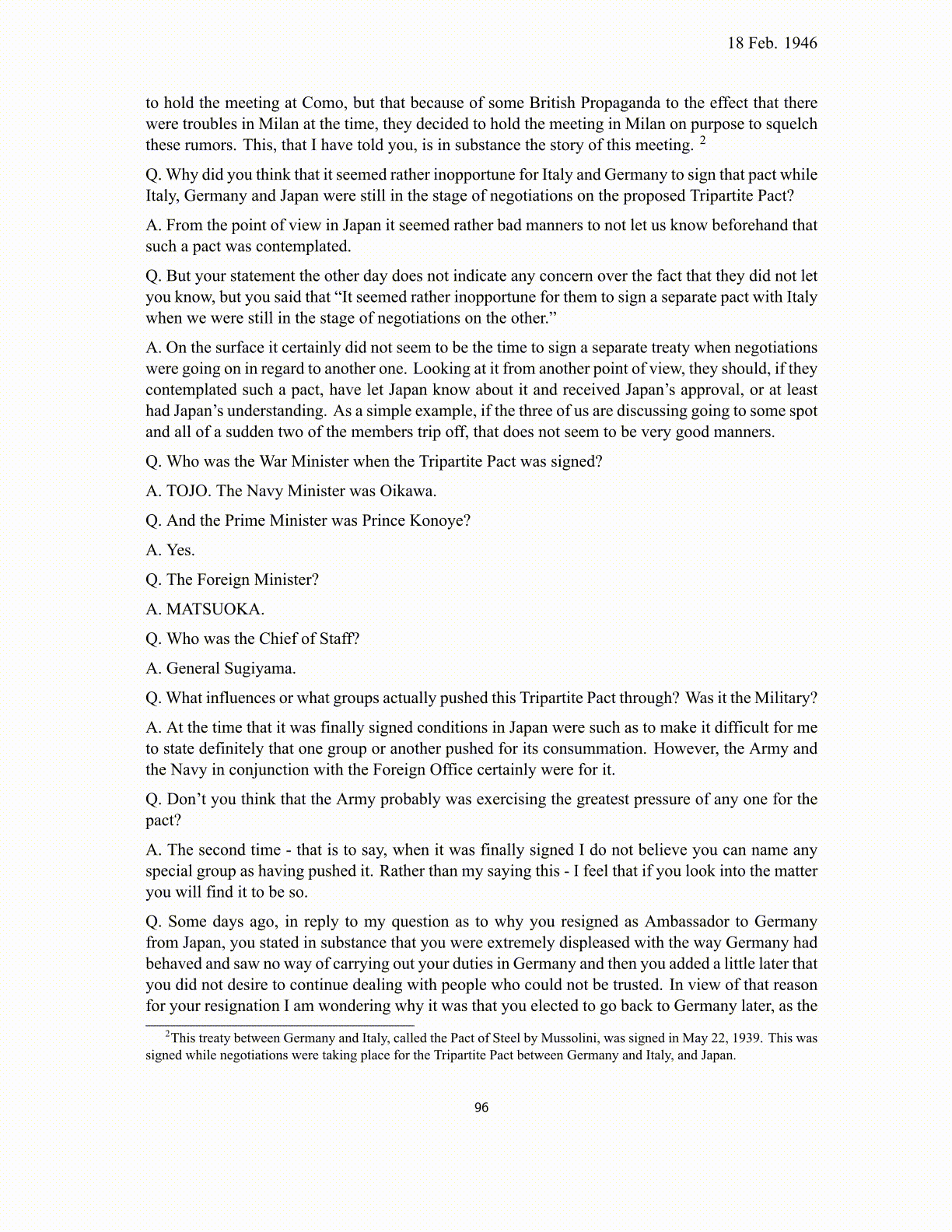
18 Feb. 1946 to hold the meeting at Como, but that because of some British Propaganda to the effect that there were troubles in Milan at the time, they decided to hold the meeting in Milan on purpose to squelch these rumors. This, that I have told you, is in substance the story of this meeting. 2 Q. Why did you think that it seemed rather inopportune for Italy and Germany to sign that pact while Italy, Germany and Japan were still in the stage of negotiations on the proposed Tripartite Pact? A. From the point of view in Japan it seemed rather bad manners to not let us know beforehand that such a pact was contemplated. Q. But your statement the other day does not indicate any concern over the fact that they did not let you know, but you said that “It seemed rather inopportune for them to sign a separate pact with Italy when we were still in the stage of negotiations on the other.” A. On the surface it certainly did not seem to be the time to sign a separate treaty when negotiations were going on in regard to another one. Looking at it from another point of view, they should, if they contemplated such a pact, have let Japan know about it and received Japan’s approval, or at least had Japan’s understanding. As a simple example, if the three of us are discussing going to some spot and all of a sudden two of the members trip off, that does not seem to be very good manners. Q. Who was the War Minister when the Tripartite Pact was signed? A. TOJO. The Navy Minister was Oikawa. Q. And the Prime Minister was Prince Konoye? A. Yes. Q. The Foreign Minister? A. MATSUOKA. Q. Who was the Chief of Staff? A. General Sugiyama. Q. What influences or what groups actually pushed this Tripartite Pact through? Was it the Military? A. At the time that it was finally signed conditions in Japan were such as to make it difficult for me to state definitely that one group or another pushed for its consummation. However, the Army and the Navy in conjunction with the Foreign Office certainly were for it. Q. Don’t you think that the Army probably was exercising the greatest pressure of any one for the pact? A. The second time - that is to say, when it was finally signed I do not believe you can name any special group as having pushed it. Rather than my saying this - I feel that if you look into the matter you will find it to be so. Q. Some days ago, in reply to my question as to why you resigned as Ambassador to Germany from Japan, you stated in substance that you were extremely displeased with the way Germany had behaved and saw no way of carrying out your duties in Germany and then you added a little later that you did not desire to continue dealing with people who could not be trusted. In view of that reason for your resignation I am wondering why it was that you elected to go back to Germany later, as the 2 This treaty between Germany and Italy, called the Pact of Steel by Mussolini, was signed in May 22, 1939. This was signed while negotiations were taking place for the Tripartite Pact between Germany and Italy, and Japan. 96